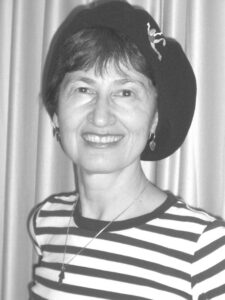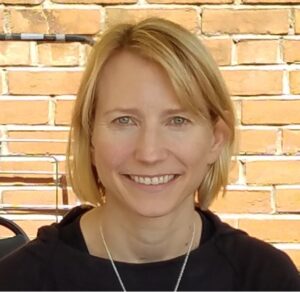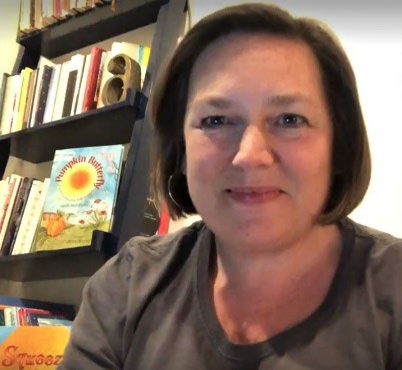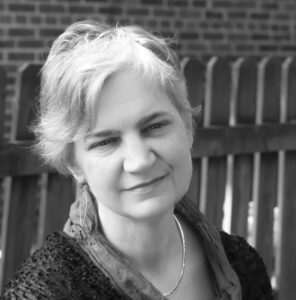The Pick-a-Poet Program invites local published poets into Arlington Public Schools to provide poetry writing exercises in the classroom and allows students the opportunity to talk with the poets. Teachers contact the Humanities Project Coordinator to make arrangements for the poets and for funding. Students are then encouraged to participate in the Moving Words Poetry Competition, which puts poetry on Arlington Transit (ART) buses.
Held each spring for Arlington Public School students, the Moving Words Student Poetry Competition is a partnership between Arlington Cultural Affairs and the Arlington Public Schools Humanities Project, with support from Arlington Transit. Moving Words supports the goals of the Humanities Program’s Pick-A-Poet program, which invites professional poets into APS classrooms to share their experience and love for the craft with students. Visiting poets help students explore their own creativity, insight, and intellectual curiosity through the creative writing process, and provide students an opportunity to meet and talk with professional writers. The students are then encouraged to submit their work to the Moving Words student competition.
Poems will be selected by a panel of literary professionals from each of the following categories: K-2nd, 3rd–5th, 6th–8th, and 9th–12th. Winners will be invited to a poetry performance workshop and to give a public poetry reading in an awards ceremony scheduled for Fall 2021. The selected poems will be exhibited on Arlington ART Buses from October through March.
Click Here to View previous years’ winners
2023 – Meet the Poets
*** Click on a poet below to see examples of their poetry and workshops they offer ***
Click Here to request and schedule a Poet
|
Katherine Young |
Katherine E. Young is the author of Day of the Border Guards, 2014 Miller Williams Arkansas Poetry Prize finalist, and two chapbooks. Her poems have appeared in Prairie Schooner, The Iowa Review, Subtropics, and many others; her translations of contemporary Russian-language poetry and prose have won international awards. Young was named a 2020 Arlington County Individual Artist Grant recipient and a 2017 National Endowment for the Arts translation fellow. From 2016-2018 she served as Arlington’s inaugural Poet Laureate.“Regardless of the age group, I start all workshops with questions: what is a poem? Why write one? What tools can you use to write poems? I love going into classrooms where kids are excited to host a visiting poet, “but I particularly enjoy the challenge of going into classrooms where kids expect to be bored by poetry” |
Preparation For Poet Visit
Through the Pick a Poet Program, students will have opportunities to:
- Listen to and read a variety of poetry
- Meet and explore poetry with a professional poet
- Write (either as a group or individually) at least one poem
- Recite poetry (original and/or published works)
Ideas for preparing your students for your Poet Visit:
- Begin each class by reading a poem.
- Have students recite poetry.
- Have poetry anthologies available for students to read.
- Read bio of visiting poet. Read samples of their work.
- Introduce different poetry techniques to students.
- Discuss with your visiting poet what they would like you to introduce prior to their visit.
The following suggestions will help ensure your Poet Visit is successful for you and your students. Please:
- Follow up/communicate with your visiting poet (e-mail and phone messages) in a timely manner
- Work with the Poet to schedule a time that is mutually beneficial
- Provide guidance to the Poet on working with your class (prior and during the workshop); i.e. students prior knowledge of poetry, classroom rules, school culture – anything that would be helpful for prepping a guest in your classroom
- Do not tolerate disruptive behavior. We ask that teachers be responsible for their students’ behavior during the workshop.
- Participate! Teachers are asked to actively participate in the workshop. Poets should not be left alone with the class at any point during their visit.
- Complete and return Poet evaluation to Humanities ProjectCoordinator within two weeks of your poet visit. Copies of poems created
After Your Poet Visit
After Workshop
- Have students continue to edit poems written during poet visit.
- Encourage students to submit their poetry to MovingWords poetry contest.
Extensions
- Design a creative writing exercise based on your poet visit.
- Have students memorize a poem (original or published)to recite in class.
- Host a poetry reading and have students read their poems to each other (in pairs or to the class). Make it big! Invite other classes, parents, administrators.
- Create and publish a Poetry Anthology with original poems by your students/school.
- Have students illustrate their poems and display.
- Have students write poems based on a specific topic/curriculum link, work of art, current news, holiday, emotion, object – almost anything can be a poetry idea generator!
- Create classroom “Magnetic Refrigerator” poetry: Decide on a topic and have students brainstorm nouns, verbs, and adjectives relating to the topic. Cut out each word individually and mix up on a bulletin board/butcher paper. Have students take turns creating original poems using the words.
For more information on Pick-a-Poet/Moving Words or the Humanities Project, please contact: [email protected]
 Contact
Contact  Calendars
Calendars Careers
Careers Engage
Engage  District
District









